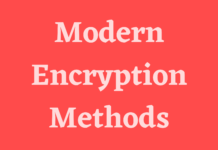Network safety analysts throughout the end of the week revealed new security hazards related with interface reviews in well known informing applications that cause the administrations to spill IP addresses, uncover joins sent by means of start to finish encoded talks, and even pointlessly download gigabytes of information covertly out of sight.
“Connections partook in talks may contain private data planned uniquely for the beneficiaries,” analysts Talal Haj Bakry and Tommy Mysk said.
“This could be charges, contracts, clinical records, or anything that might be classified.”
“Applications that depend on workers to produce connect sneak peaks might be abusing the protection of their clients by sending joins partook in a private visit to their workers.”
Creating Link Previews at the Sender/Receiver Side
Connection sneak peaks are a typical component in most talk applications, making it simple to show a visual see and a short depiction of the mutual connection.
Despite the fact that applications like Signal and Wire give clients the choice to turn on/off connection reviews, a couple of others like Threema, TikTok, and WeChat don’t produce a connection see by any means.
The applications that do produce the reviews do so either at the sender’s end or the beneficiary’s end or utilizing an outside worker that is then sent back to both the sender and collector.
Sender-side connection sneak peaks — utilized in Apple iMessage, Signal (if the setting is on), Viber, and Facebook’s WhatsApp — works by downloading the connection, trailed by making the see picture and rundown, which is then shipped off the beneficiary as a connection. When the application on the opposite end gets the review, it shows the message without opening the connection, in this manner shielding the client from pernicious connections.
“This methodology accepts that whoever is sending the connection must confide in it, since it’ll be the sender’s application that should open the connection,” the specialists said.
Conversely, connect sneak peaks created on the beneficiary side makes the way for new dangers that allows a troublemaker to check their estimated area with no activity taken by the recipient by just sending a connect to a worker under their influence.
This happens in light of the fact that the informing application, after getting a message with a connection, opens the URL consequently to make the review by unveiling the telephone’s IP address in the solicitation shipped off the worker.
Reddit Chat and an undisclosed application, which is “currently fixing the issue,” were found to follow this methodology, per the specialists.
Utilizing an External Server to Generate Link Previews
In conclusion, the utilization of an outer worker to produce reviews, while forestalling the IP address spillage issue, makes new issues: Does the worker used to create the see hold a duplicate, and provided that this is true, for how long, and what do they use it for?
versatile informing applications
A few applications, tallying Discord, Facebook Messenger, Google Hangouts, Instagram, LINE, LinkedIn, Slack, Twitter, and Zoom, fall into this class, with no sign to clients that “the workers are downloading whatever they find in a connection.”
Testing these applications uncovered that aside from Facebook Messenger and Instagram, all others forced a 15-50 MB cap with regards to the records downloaded by their separate workers. Slack, for example, stores connect reviews for around 30 minutes.
The anomalies, Facebook Messenger and Instagram, were found to download whole records, regardless of whether they ran into gigabytes in size, (for example, a 2.6GB document), which as per Facebook, is an expected component.
That being said, the scientists caution, this could be a “security bad dream” if the workers do hold a duplicate and “there’s ever an information break of these workers.”
Furthermore, regardless of LINE’s start to finish encryption (E2EE) include intended to keep outsiders from listening in on discussions, the application’s dependence on an outer worker to produce interface reviews permits “the LINE workers [to] thoroughly understand the connections that are being sent through the application, and who’s sharing which connects to whom.”
Connection has since refreshed its FAQ to mirror that “so as to produce URL sneak peaks, joins partook in talks are additionally shipped off LINE’s workers.”
In a different case, the specialists likewise found it was conceivable to possibly execute noxious code on interface review workers, bringing about a JavaScript code connect shared on Instagram or LinkedIn to make their workers run the code.
“We tried this by sending a connect to a site on our worker which contained JavaScript code that basically made a callback to our worker,” they said. “We had the option to affirm that we had in any event 20 seconds of execution time on these workers.”
Remembering the Privacy and Security Implications
Bakry and Mysk have recently uncovered imperfections in TikTok that made it feasible for assailants to show fashioned recordings, including those from confirmed records, by diverting the application to a phony worker facilitating an assortment of manufactured recordings. Prior this March, the couple likewise revealed an upsetting security get by more than four dozen iOS applications that were found to get to clients’ clipboards without clients’ unequivocal authorization.
The improvement drove Apple to present another setting in iOS 14 that alarms clients each time an application attempts to duplicate clipboard data, close by adding new authorization that shields clipboard from unjustifiable access by outsider applications.
“We believe there’s one major takeaway here for designers: Whenever you’re assembling another component, consistently remember what kind of protection and security suggestions it might have, particularly if this element will be utilized by thousands or even large number of individuals around the globe.”
“Connection sneak peaks are pleasant an element that clients by and large profit by, however here and we’ve exhibited the wide scope of issues this element can have when protection and security concerns aren’t deliberately thought of.”





![[HINDI] What is DoS attack and DDoS attack?](https://bittentechsolutions.in/wp-content/uploads/2020/04/ddos-218x150.jpg)
![[HINDI] What is juice jacking? Think twice before using public USB ports](https://bittentechsolutions.in/wp-content/uploads/2020/04/juice-jacking-risk-1200x675-1-218x150.jpg)










